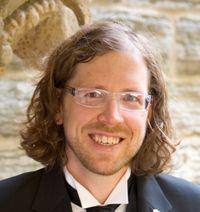Shandon Halland

A man with schizophrenia and his outreach worker altered their respective life courses after a transformative experience with a mental health nurse. Both the outreach worker and the man with mental illness profoundly benefited from the compassion and generosity of a clinician with exquisite skills - who in the course of a half dozen visits, engaged the gentlemen with equal acceptance and insistence. Her engaging style afforded the man with the unrelenting hallucinations hope and a piece of mind. The outreach worker, wondering if anything could be done, came alive with hope as bit by bit, the nurse plied her art to increasing effect. Up to that point, Jim, the man with a severe mental illness, had occupied the same small corner of the homeless drop-in center, mostly escaping notice and refusing outreach advances. But for the stretches when he angrily reacted to the hallucinations (which at times overwhelmed his ability to maintain an outward calm) he existed almost as a part of the natural landscape of the homeless community. He said very little, was reasonably polite, and absolutely refused to engage in conversations of any kind. His habits, well documented by the staff, were a little quirky. He picked up cigarette butts - emptied them of the remaining un-burnt tobacco, and then rolled his own cigarettes – smoking every hour on the hour. Jim was called “non-compliant with treatment” by the mental health establishment. He had 15-year history of working with one psychiatrist after another, failing to get better for a plethora of reasons. The last treatment had been years ago now. It surprised the outreach worker, when Jim, during a particularly rough stretch, agreed to be seen at Health Care for the Homeless Clinic. The nurse at the clinic, having been briefed that Jim distrusted mental health people, met with the him in an open area of the clinic – not wanting Jim to feel cloistered in any way. Her warmth and sensitivity, especially to his nonverbal cues, paced the first brief interview. It ended without apparent inroads, but with the agreement that he would come in again the next day. After a few more meetings, a trusting relationship between the nurse and Jim evolved. Her master craftsmanship with relating and respecting people drove a wellspring of new possibility in Jim – who up until then had extreme feelings of loneliness. Months later, Jim was on medications that brought the voices to a standstill and permitted a higher degree of social function. The outreach worker helped Jim with a transitional housing opportunity. Shortly after Jim left the world of homelessness, but still came down to the clinic to see the nurse on a weekly basis. The nurse, Adele, worked for 20+ years in the homeless community, recently retiring but still volunteering at the drop-in center. I was the outreach worker, and in another few months I will follow the lead of my mentor and become a nurse.